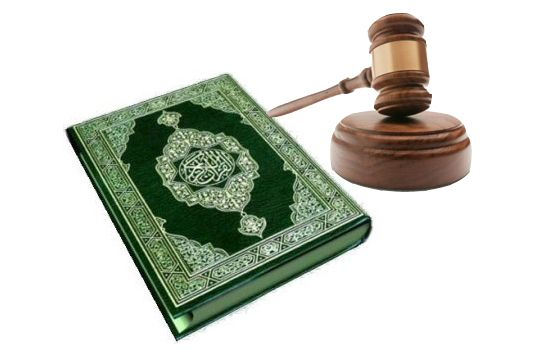Definition and Concept
Muslim Law or Islamic Law (Shariah) refers to the body of principles derived from divine revelation and the teachings of Prophet Muhammad (peace be upon him), governing all aspects of a Muslim’s life—spiritual, social, and legal. In India, matters like marriage, divorce, succession, and inheritance for Muslims are governed by Muslim Personal Law (Shariat) Application Act, 1937, particularly Section 2, which mandates that such issues be decided according to Muslim personal law rather than customs. The sources of Muslim Law are divided into primary (revealed) and secondary (derived) sources. Together, these sources ensure that Islamic law remains dynamic and adaptable while being rooted in divine principles.
Primary Sources of Muslim Law
The primary sources of Muslim law are the Quran, Sunnah (Hadith), Ijma, and Qiyas.
- The Quran – The holy book of Islam, containing divine revelations, is the supreme source of law.
- Sunnah (Hadith) – The sayings, actions, and approvals of Prophet Muhammad (PBUH) serve as a guide for interpretation of Quranic principles.
- Ijma (Consensus) – The unanimous agreement of Islamic jurists on legal issues after the Prophet’s time; recognized as binding authority.
- Qiyas (Analogical deduction) – Applying reasoning to extend existing legal principles to new situations where the Quran or Sunnah is silent.
These sources form the foundation of Fiqh (Islamic jurisprudence) and are recognized as the core framework under Indian family law for Muslims.
Secondary Sources of Muslim Law
The secondary sources include custom (Urf), judicial decisions, legislation, and equity. Customary practices that do not contradict Shariah are accepted, especially in family and inheritance matters. Judicial precedents and legislative enactments like the Wakf Act, 1995 and Dissolution of Muslim Marriages Act, 1939 supplement Muslim personal law in India. Indian courts apply these sources while ensuring justice, equity, and public welfare. This fusion of divine and human reasoning ensures that Muslim law remains relevant in modern legal systems while adhering to its moral and ethical foundations.
Real-Time Example
In Mohd. Ahmed Khan v. Shah Bano Begum (1985) 2 SCC 556, the Supreme Court referred to both Quranic principles and statutory provisions (Section 125 of CrPC) while deciding the right of a divorced Muslim woman to maintenance. The Court observed that the Quran commands fair treatment and financial support to divorced women. This case demonstrated how Indian courts interpret Muslim personal law harmoniously with constitutional and statutory laws, thereby blending primary sources (Quran) with secondary sources (legislation and judicial precedent) to ensure justice.
Mnemonic to Remember
“QSIQC – Quran, Sunnah, Ijma, Qiyas, Custom”
- Q – Quran → Primary and divine source.
- S – Sunnah → Prophet’s teachings.
- I – Ijma → Consensus of jurists.
- Q – Qiyas → Analogical deduction.
- C – Custom → Accepted if not against Shariah.
About lawgnan:
Explore the essentials of Muslim Law in India with detailed explanations, primary and secondary sources, and landmark case references at Lawgnan.in. Learn how the Quran, Sunnah, Ijma, Qiyas, and customary practices form the backbone of Islamic jurisprudence applied in Indian courts. Understand real-life applications through cases like Mohd. Ahmed Khan v. Shah Bano Begum (1985), which harmonizes Quranic principles with statutory law. Lawgnan.in offers student-friendly, concise notes on Muslim personal law, perfect for LLB exams, legal research, or general awareness about marriage, divorce, inheritance, and guardianship in the Indian legal framework.




